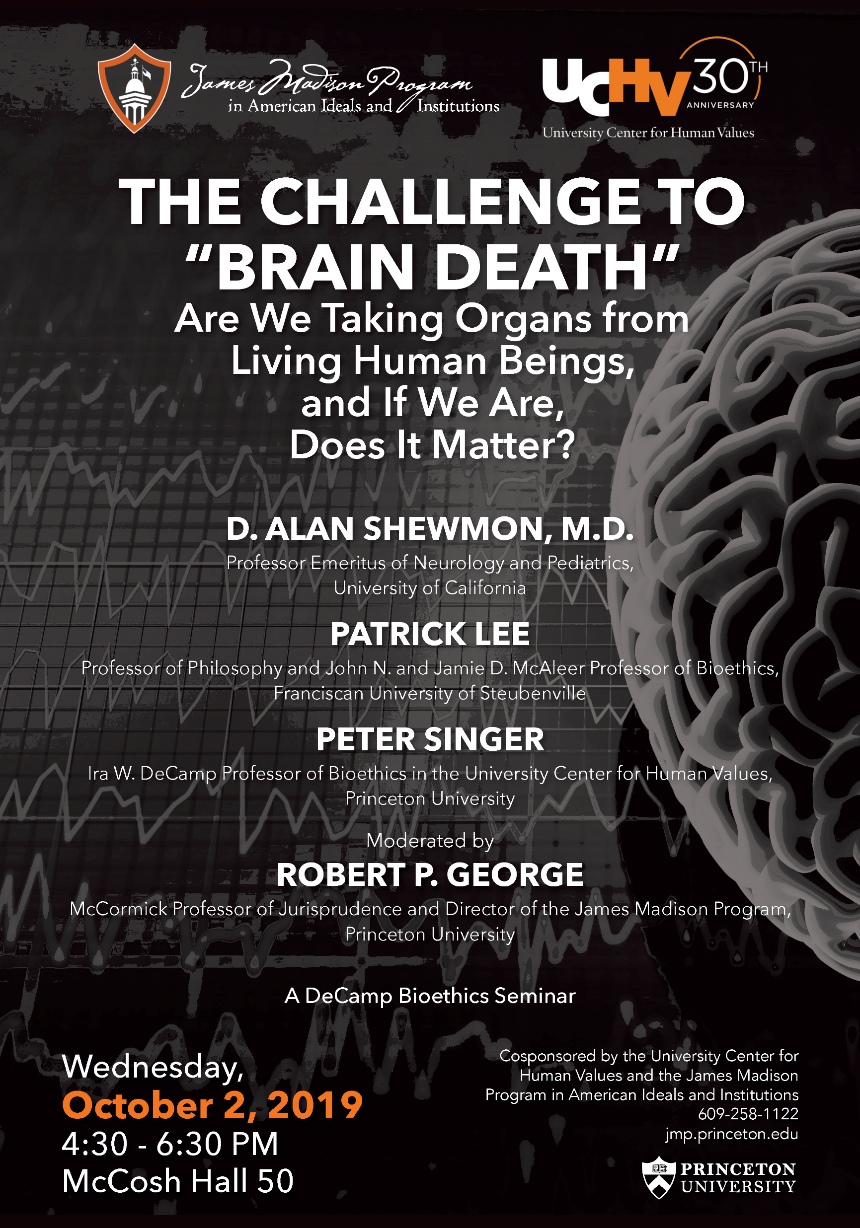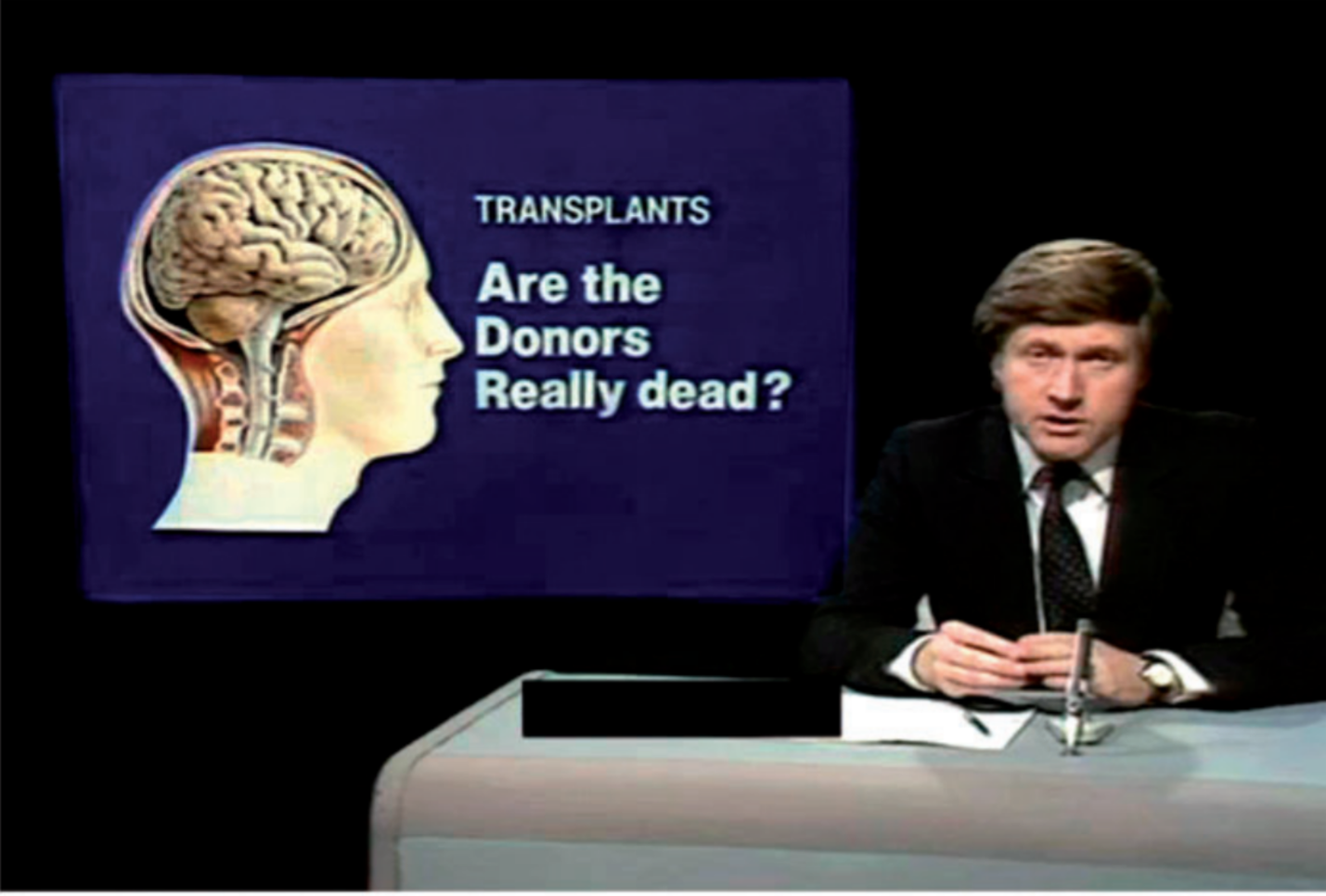بِسۡمِ اللهِ الرَّحۡمٰنِ الرَّحِيۡمِ
Introduction
The issue of brain death is multifaceted, with profound implications. It is imperative to clarify that this article aims to provide information objectively, devoid of any conflicts of interest. The author has neither been influenced by any organization nor represents any particular group. The views expressed herein are solely those of the author.

The central debate surrounding brain death revolves around the distinction between legal status and biological state. Confusion arises from conflating status with the state, wherein brain death is recognized as legal status of death, yet it does not signify actual biological state of being dead. Various analogies illustrate this point: an individual can be declared legally dead despite all bodily organs being functional, akin to being registered legally blind without actually being blind. Similarly, legal recognition of gender may not align with biological reality.
Legal status is contingent upon time, location, and societal norms, subject to change. In contrast, biological reality remains constant, irrespective of external factors. The persistence of the brain death concept primarily serves the procurement of vital organs from individuals deemed legally dead, albeit biologically alive. This ethical dilemma underscores the tension between preserving life and sacrificing one for the benefit of many.
From a logical standpoint, a dead organism cannot be dead when none of its constituent organs are dead. Brain death diagnosis does not necessitate the death of any organ; instead, it relies on specific neurological criteria. The scarcity of organs for transplantation underscores the necessity of retrieving organs from individuals labelled as brain dead, despite them not meeting the criteria for actual death.
Long-standing controversy
The discourse regarding the validity of brain death as a true form of death has endured for more than half a century, both within public discourse and academic circles, with little indication of reaching a resolution. Firstly, there i s no compelling philosophical argument supporting the acceptance of brain death as synonymous with actual death. Secondly, there exists a lack of consensus in the application of diagnostic criteria across nations where brain death is legally recognized as constituting death. In the United States, for example, the statutory definition of whole-brain death does not consistently align with the clinical tests utilized to diagnose this condition. Furthermore, different U.S. states have varying criteria regarding the necessity of obtaining authorization from the patient's family to conduct the apnoea test.
s no compelling philosophical argument supporting the acceptance of brain death as synonymous with actual death. Secondly, there exists a lack of consensus in the application of diagnostic criteria across nations where brain death is legally recognized as constituting death. In the United States, for example, the statutory definition of whole-brain death does not consistently align with the clinical tests utilized to diagnose this condition. Furthermore, different U.S. states have varying criteria regarding the necessity of obtaining authorization from the patient's family to conduct the apnoea test.

Is there more than one type of death?
In reality, there is only one type of actual death which every individual and living being undergoes, it is absolutely irreversible and leads to the decomposition of the body. Brain death and other types of deaths are concepts. The question of whether brain death equates to Islāmic death prompts reflection on the broader concept of death, transcending religious boundaries. Simplifying the discourse by focusing on the universal human understanding of death may facilitate a clearer understanding. Defining death or delineating when life begins may unnecessarily complicate the debate.
Considering the various types of death, such as social, spiritual, and medical, underscores the importance of contextualizing the question of brain death within the appropriate framework. The self-fulfilling prophecy inherent in the brain death approach warrants scrutiny, as it defines death based on features exclusive to brain death itself, leading to inherent contradictions.
Legal Status of Death Versus Biological State of Death
The discrepancy between legal and biological death underscores the complexities inherent in societal norms and legal frameworks. While brain death holds legal significance in many jurisdictions, it fails to align with biological reality. Legal determinations, such as age of majority or marriage eligibility, may diverge from natural laws, highlighting the malleability of legal definitions.
The concept of legal death may serve societal needs, such as facilitating organ donation, yet it does not alter biological reality. Despite religious and cultural variations in defining death, certain fundamental principles, such as irreversibility and decomposition, remain universal markers of actual death.
Legal Decrees (Fatawa) Regarding Brain Death
The following is a compilation of significant legal decrees from the Muslim world concerning brain death:
1981: In Kuwait, a religious committee asserted that an individual remains alive as long as circulation and respiration persist, even if respiration is mechanically assisted. This decree concluded that brain death does not align with the concept of Islāmic death.
1982: In Saudi Arabia, the Senior Religious Scholars Commission sanctioned organ donation from individuals diagnosed as brain dead.
1985: The Islāmic Organization for Medical Sciences (IOMS) equated brainstem death with a state of unstable life (al-hayat ghair al-mustaqirr), permitting the discontinuation of life-support systems. However, it refrained from equating brainstem death with a formal declaration of legal death. Despite a review in 1996, the IOMS retained its original stance.
1986, Oct. 11-16, Amman (IFA-OIC): Resolution no. 17 (Fatwa) of the Council of Islāmic Jurisprudence on Resuscitation Apparatus (Islāmic Fiqh Academy), during its 3rd session, endorsed two legal standards for declaring death: complete cessation of the heart and respiration, confirmed irreversibly by physicians, or complete cessation of all vital brain functions, with specialists deeming it irreversible and noting brain degeneration. This decree appears to refer to the death of the brain, which has initiated degeneration, rather than brain death as practised clinically. It highlights that brain death, as practised in clinical medicine, does not equate with Islāmic death. Notably, this fatwa employs the terms "irreversible" and "degenerate," which may not necessarily apply to a diagnosis of brain death in clinical practice, as supported by the lack of clinical studies verifying these phenomena.
1987, Oct. 17-21, Makkah (IFA-MWL): The Council of Islāmic Jurisprudence of the Muslim World League, during its 10th session, issued resolution no. 2, permitting the withdrawal of life-support systems from individuals declared as whole brain dead by three physicians. However, pronouncing the individual dead was contingent upon the cessation of breathing and heartbeat. This decree did not equate brain death with legal death, thereby contradicting the 1986 fatwa. Despite its significance, it received minimal attention in the media, reaffirming that brain death, as practised in clinical medicine, does not correspond with Islāmic death. Interestingly, while the IFA-OIC accepted brain death as legal death in 1986, the IFA-MWL rejected this notion a year later.
1995: A fatwa from the Muslim Law Council in the UK stated that it accepts brain stem death as constituting the end of life for organ transplant purposes. Notably, this decree was issued without the involvement of medical professionals.
2000: The European Council for Fatwa and Research ratified the 1986 fatwa issued by the IFA. It defined death as the cessation of all brain functions or the irreversible dysfunction of the heart and respiratory system. This fatwa underscores that brain death, as practised in clinical medicine, does not align with Islāmic death.
2007: At the 16th Fiqhi Seminar in Muhazzabpur, Azamgarh, the Indian Fiqh Academy declared death as the complete collapse of the respiratory system, accompanied by apparent signs of death. This fatwa emphasized that brain death does not equate with Islāmic death.
2019: Mufti Zubair Butt issued a detailed fatwa on organ donation, stating that brain death does not constitute death in Islām.
2021: The Fiqh Council of North America declared that brain death is not included in the definition of death, thus precluding the extraction of vital organs, such as the heart, for donation purposes in such a state. Medical expert opinion was sought in issuing this fatwa.
Conclusion
In conclusion, brain death, while legally recognized in many jurisdictions, is NOT actual biological death. Those experts in 1968 who originally put forward the concept of brain death did not intend to equate it with the traditionally understood actual death. They proposed a new definition of death which would reflect advances in medicine and societal needs. Later on, some people try to promote the notion that brain death was actual death which led to the ongoing confusion and debate on the subject.
Some Muslim scholars while acknowledging that brain death is not actual death do consider brain death to be legal death death in Islām. These scholars consider deceased organ donation to be permissible.
The discrepancy between legal and biological implications underscores the complexities of societal norms and ethical considerations. While legal death may serve practical purposes, it should not overshadow the immutable reality of biological death. Clarifying the distinction between legal and actual biological death is essential for navigating ethical dilemmas surrounding end-of-life care and organ transplantation.
Dr. A. Hussain

